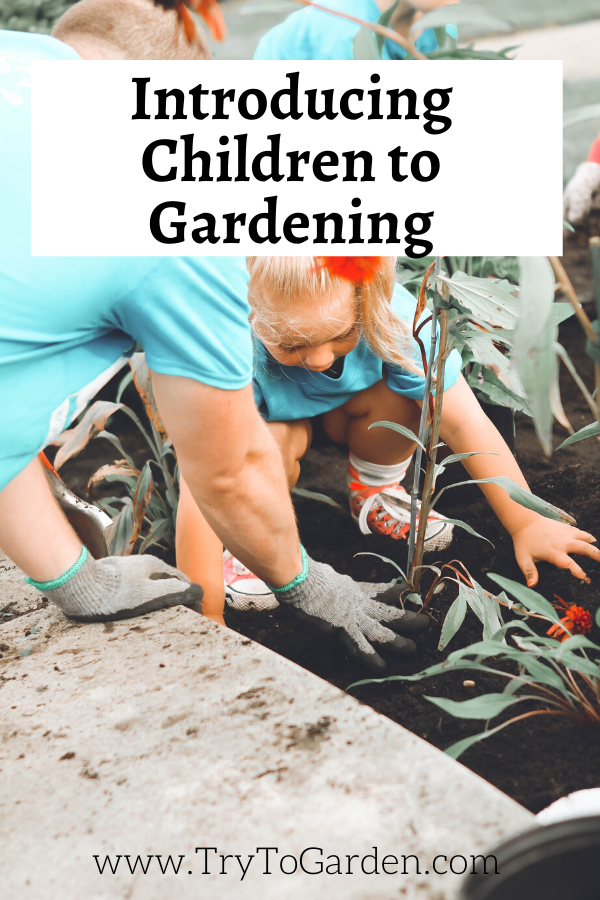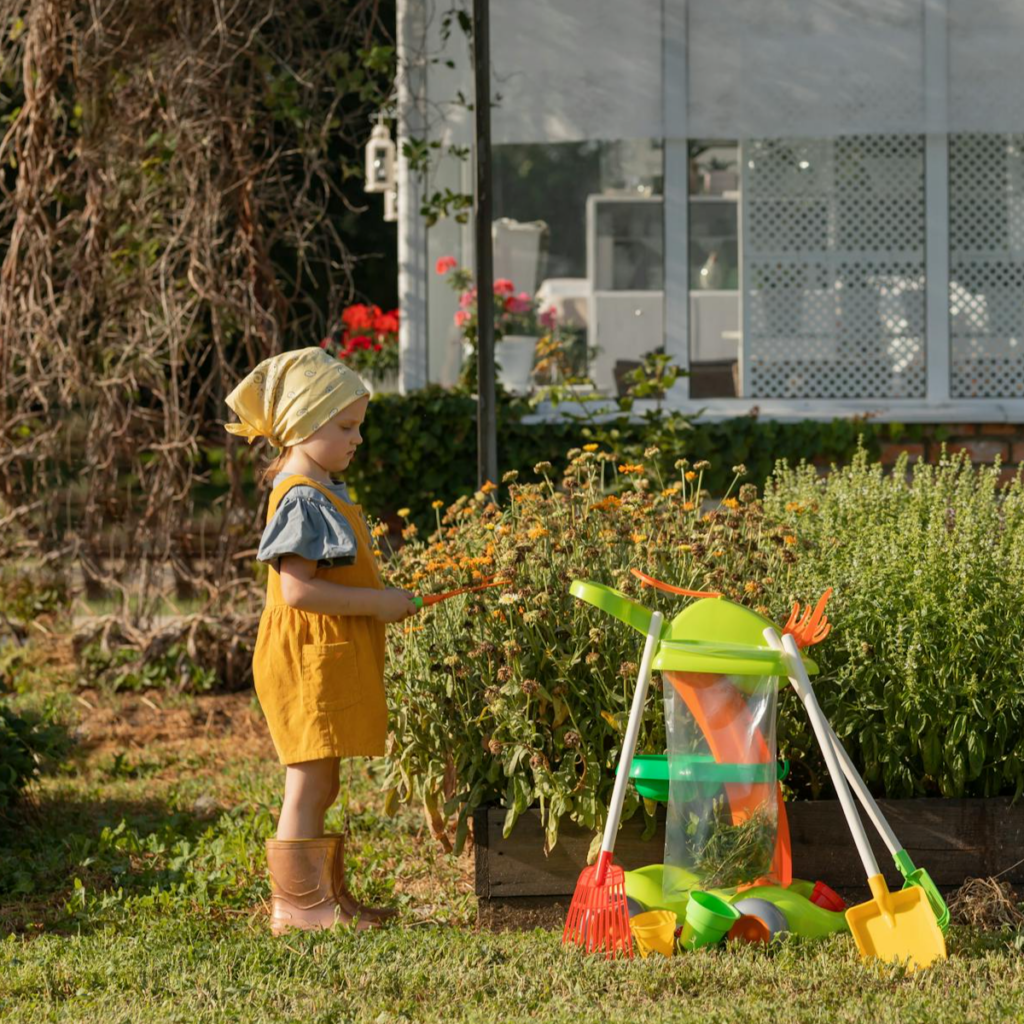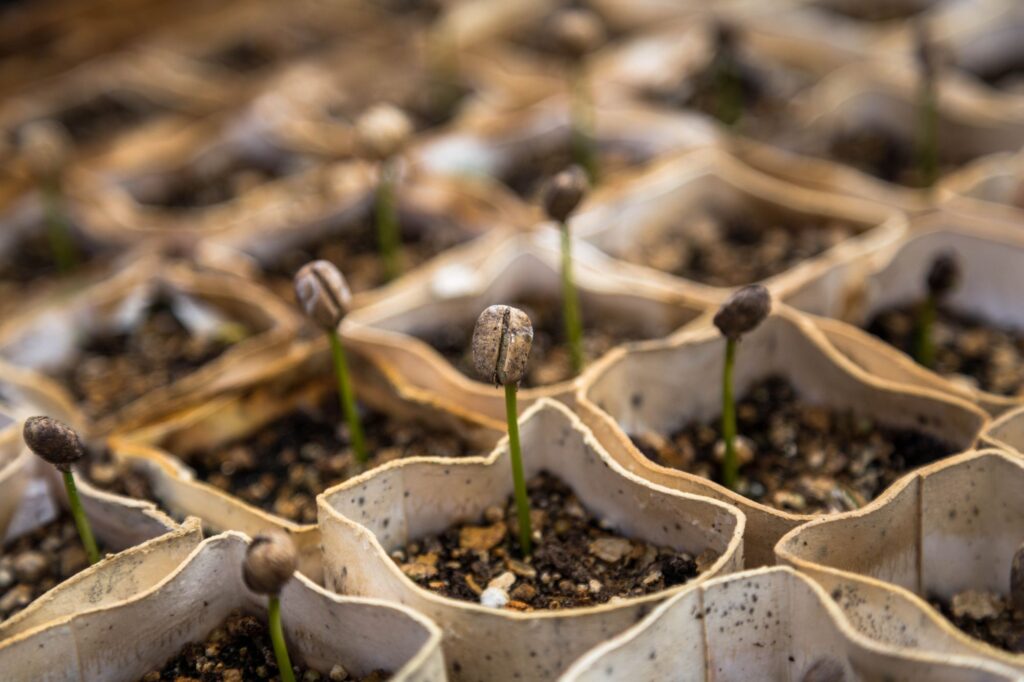This post contains affiliate links, which means I will make a commission at no extra cost to you should you click through and make a purchase. As an Amazon Associate I earn from qualifying purchases.
Children can learn how to plant a garden even at the young age of two. Parents can do this easily by doing age-appropriate activities. Introducing children, as young as two years old, how to garden is an important life skill. Not only does gardening teach children how plants grow, but also how to become self-sufficient later in life. It is essential to teach children some age-appropriate basics. Even gardening with toddlers can be fun!

Introducing Children to Gardening
Check out a few of these gardening tools and activities that are sized for younger children. It's important to have tools that are your toddler's sizes.
Gardening with Toddlers
Toddlers can be introduced to gardening with some simple activities listed below:
- Find a packet of seeds (that can be eventually put into the family's garden) that the toddler chooses and plant them in little containers in the house.
- Have the toddler help put the soil in the container, put the seed in, and water it.
- Teach how to wash and dry hands properly after "helping out."
- Once the seed has grown into a plant that is ready to be put into the garden, have the toddler help put it into the garden.
- Teach the toddler how to water the plants in the garden (hint: purchase an inexpensive watering plant that is smaller in size that the toddler can carry independently; can buy these at a dollar or discount stores).
- Have the toddler help pick plants from a nursery, hardware store, etc. and let the little help plant in the garden.
- Show the toddler how to pick the vegetables and/or plants from the mature plant.

Teaching Preschoolers (Ages 3 to 5) to Grow Fruits and Vegetables
Preschoolers can do all of the tasks stated in the toddler section, but can help with the following additional activities listed below:
- Ask what the child likes to eat and write them on a list.
- Go to the local nursery, hardware store, etc., and look for listed items in the store (if the plant is not offered or can be grown in the family's garden explain why).
- Ask the child how to set up the garden (include some of the child's ideas in the garden's formation).
- Review how and when to wash hands properly.
- Show when and how to pick vegetables and fruits from the family's garden correctly.
- Brainstorm ways on how to use fresh vegetables and fruits.
- Go to the local farmer's market and discuss how and where the different items are grown (and take some home to try).

Gardening Tips for Elementary Students (Ages 5 to 9)
Children who attend elementary school can complete the same activities listed in the toddler and preschooler section, but with less assistance from parents. Parents can model how to do the activities, and then let the child try independently. Listed below are some additional activities for elementary students:
- Have the child discuss what to plant in the garden (incorporate some of their ideas or wants into the garden).
- Discuss all of the supplies needed to plant garden items and take the child to purchase the items.
- Demonstrate how to plant the garden and have a child assist as much as possible.
- Teach how to identify a plant vs. a weed.
- Teach the child how to pull weeds properly.
- Show how to develop a compost pile in or next to the garden, as well as what a compost pile can be used for.
- Give a specific job or two to help maintain the garden.
- Have the child help pick the fruits and vegetables.
- Show how to use the fruits and vegetables from the garden to use in meals or snacks.
- Show how to can extra amounts of fruits and vegetables (as well as the purpose of canning).
- Model how to share extra fruits and vegetables with the local food pantry, neighbors, and family.
- Discuss how fresh fruits and vegetables can keep people healthy.
Start with the basics
It doesn't matter if you are gardening with Toddlers, preschoolers, or elementary-aged children. All can learn how to garden when learning the basics first. Make sure to have activities and conversations that are age-appropriate.
When a child learns from a young age how to develop and maintain a garden, he or she will learn many things. Maybe the most important lesson is how to have fun and eat healthily.
Other posts you may enjoy:
Finally, you may also want to check out these gardening tips.
